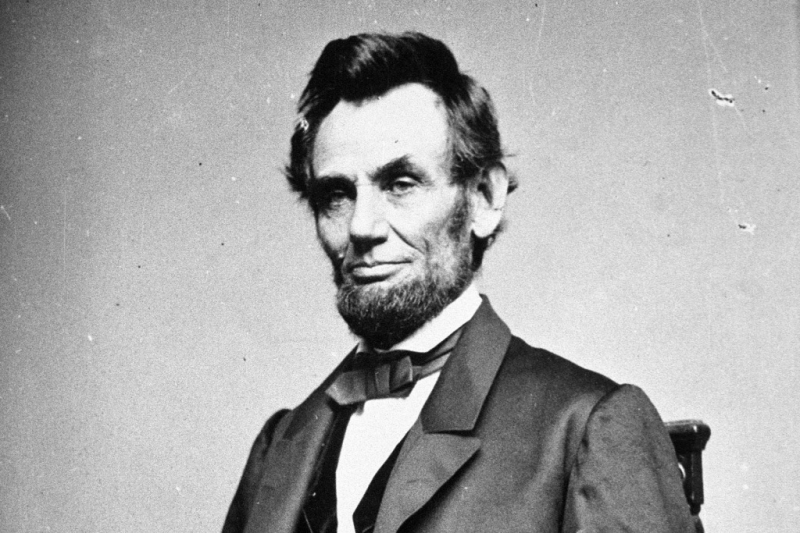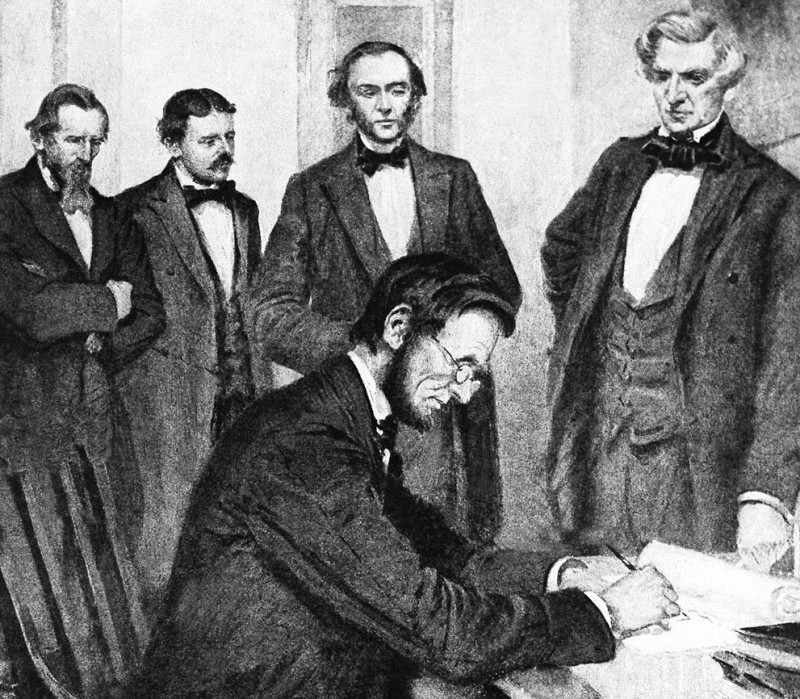Meeting Abraham Lincoln Changed His Mind About The President
Emerson was adamantly opposed to slavery, yet he resented being in the spotlight and was wary of giving speeches on the matter. He did, however, provide a number of lectures in the years preceding the Civil War, starting in November 1837. At first, he was less vocal about abolition than some of his friends and family members, but starting in 1844, he became more hostile to slavery. When John Brown visited Concord, he delivered a series of speeches and lectures and invited Brown to stay at his house. He supported Abraham Lincoln in the 1860 election, but was dissatisfied because Lincoln was more focused on keeping the Union than completely abolishing slavery. Emerson made it clear that he supported the quick emancipation of the slaves once the American Civil War started.
Emerson was summoned to the White House to see Lincoln in 1862 after delivering a speech opposing slavery in Washington, D.C. Lincoln had already seen Emerson give a speech, so he was familiar with his writings. After this meeting, Emerson's reservations about Lincoln started to fade. Lincoln “impressed me more favorably than I had imagined” according to Emerson, who lauded the president's charisma and storytelling skills. “When he has made his statement, he looks up at you with a great satisfaction, and reveals all his white teeth, and laughs”, Emerson wrote. Lincoln was described by Emerson as an honest, well-intentioned, pleasant, and articulate man.












